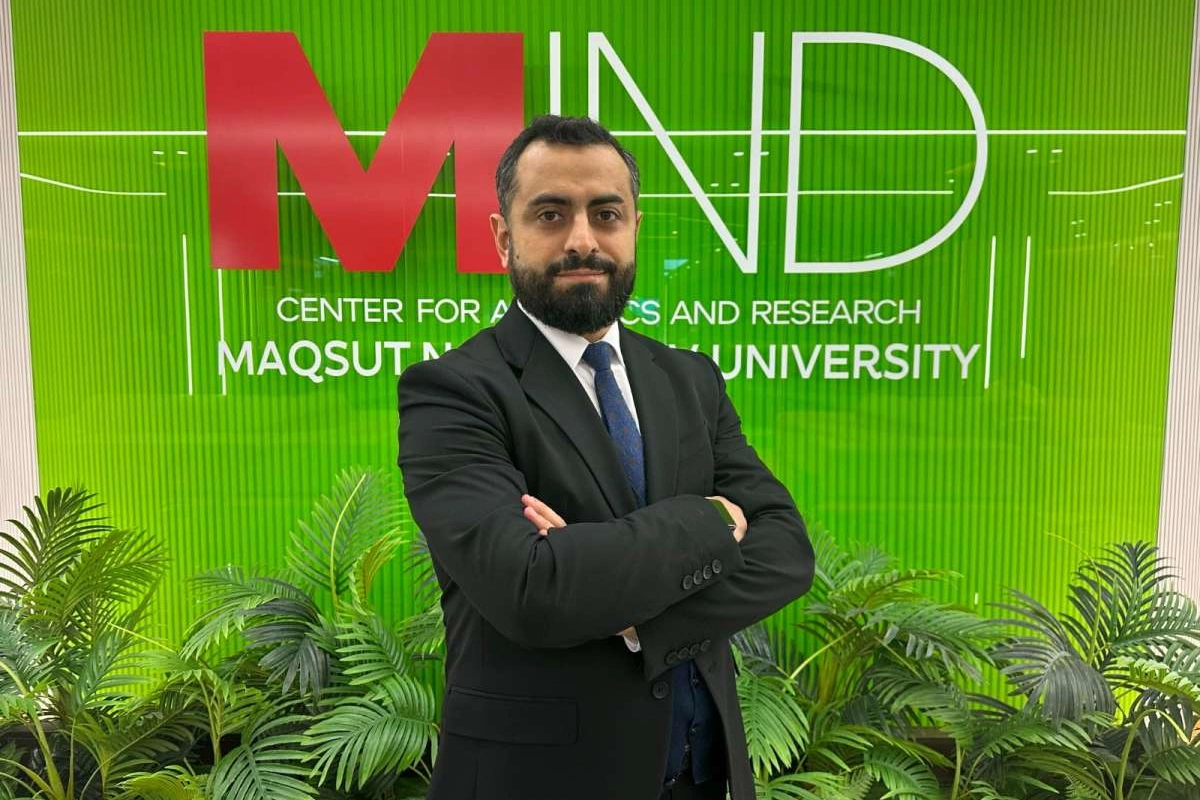
"The Middle Corridor has immense potential to reshape the geopolitical dynamics of the South Caucasus and Central Asia."
The Caspian Post presents an exclusive interview with Emin Jabbarov, a senior research fellow at the MIND think tank, part of Maqsut Narikbayev University in Astana, Kazakhstan. Mr. Jabbarov specializes in strategic studies, with a focus on military and international security, and provides deep insights into the security dynamics of the Middle East, Central Asia, and the Caucasus.
- Your work covers strategic studies in the field of security. In your view, what role does the Middle Corridor play in ensuring stability and security in Central Asia and the Caucasus?
- The Middle Corridor is important for Kazakhstan's economy. Diversifying transport routes is essential for Kazakhstan to reduce economic turbulence, making it a national priority. Moreover, protecting these interests lies at the core of our foreign policy.
This initiative not only strengthens ties between Kazakhstan and Azerbaijan but also connects the broader regions of Central Asia and the South Caucasus. Such interdependence has the potential to form what academics call a "security community," fostering mutual stability and cooperation.
Moreover, this shift in spatial relations between our regions raises important questions about protection mechanisms. Such developments drive countries in the two regions toward collective defense initiatives. For instance, Azerbaijan and Central Asian nations have recently conducted joint military exercises, such as “Birlig,” a term common to Turkic languages, symbolizing “unity” and collective strength.
- Do you think the Middle Corridor has the potential to shift the balance of power in the region, given its capacity to create new transport and economic links?
- Absolutely. The Middle Corridor has immense potential to reshape the geopolitical dynamics of the South Caucasus and Central Asia. Kazakhstan and other Central Asian countries align with initiatives like China’s Belt and Road Initiative. This represents a paradigm shift, moving away from patterns of unilateral dependence.
By diversifying our engagements with global powers, we are creating a legacy of self-reliance and regional cooperation. This transformation marks our transition from being passive objects in the international system to becoming active subjects, capable of shaping our own regional identity and relationships.
- What are the main security threats currently faced by the countries of Central Asia and the Caucasus, and what strategies are necessary to counteract them?
- Security threats in our regions include asymmetric attacks, information warfare, cyber-attacks, and conventional military threats. Addressing these challenges requires a collective understanding of shared roles, interests, and ideas across Central Asia and the Caucasus. The most effective strategy is fostering regional cooperation. By working together to identify and address these threats, we can establish a common security framework that strengthens our collective resilience. This collaborative approach allows our regions to present a unified stance in international relations, transforming us into proactive agents rather than reactive participants in the global system.
- In recent years, we have seen an increase in geopolitical tensions in the Middle East. How does this situation impact the security landscape of Central Asia?
- Geopolitical tensions in the Middle East underscore the biased narratives often propagated by international media and organizations. A key takeaway is that international relations remain anarchic, where actions are frequently dictated by whether human rights concerns align with the national interests of democratic states. If they don’t, little action is taken.
For Central Asia, the lesson is clear: we must construct our own narratives and strategies, independent of external biases. Strengthening regional cooperation and fostering self-reliance will enable us to better insulate ourselves from the effects of such geopolitical tensions.
- How do you assess the prospects for security cooperation among Central Asian countries in the context of growing influence from external powers?
- Regional cooperation seems to be flourishing, partly due to reduced external pressure. Mutual understanding between Kazakhstan and Uzbekistan is key in promoting institutional and regional cooperation within Central Asia. Their leadership has set a strong example for fostering closer ties among Central Asian nations, paving the way for unified security strategies.
Additionally, Azerbaijani President Ilham Aliyev’s recent statement that "Central Asia (the Turkic world) is our home and Baku’s priority is to align with the region" further bolsters regional dynamics. Such sentiments are crucial drivers of the growing interconnectivity and strengthened relations within and between the two regions.
- What do you see as Kazakhstan’s long-term strategies for strengthening national security amidst a changing global order?
- Kazakhstan must develop a robust conceptual framework to analyze and respond to global developments. This includes understanding how global think tanks and media shape narratives, often influenced by external biases.
For example, I once admired the Carnegie Moscow Center, but their claim that Syrian fighters participated in the Karabakh conflict was a striking example of misinformation. Such narratives lack historical and conceptual validity, often reflecting Eurocentric biases rather than objective analysis.
To counteract these influences, Central Asia and the South Caucasus must establish their own agendas, frameworks, and policies for information dissemination. Enhancing collaboration among local and regional think tanks, media outlets, and academic institutions is a critical step in achieving this goal. This approach will ensure that our perspectives are accurately represented and that we remain active participants in shaping global discourse.
Share on social media